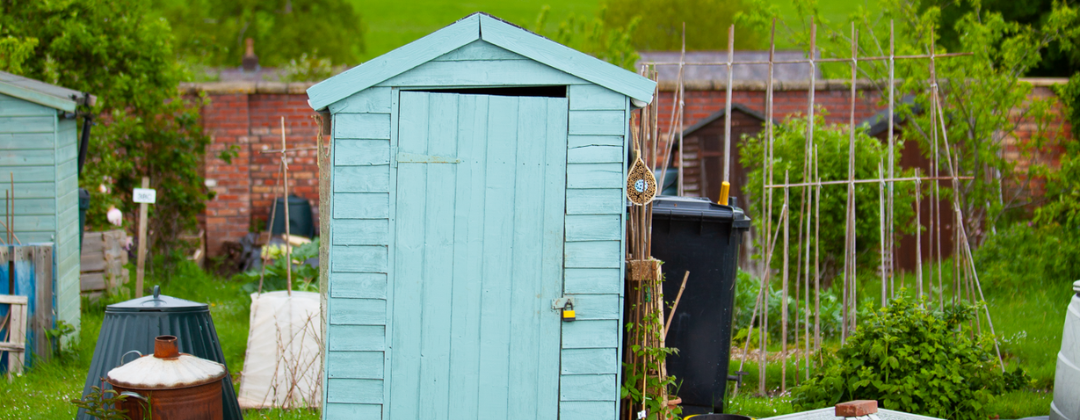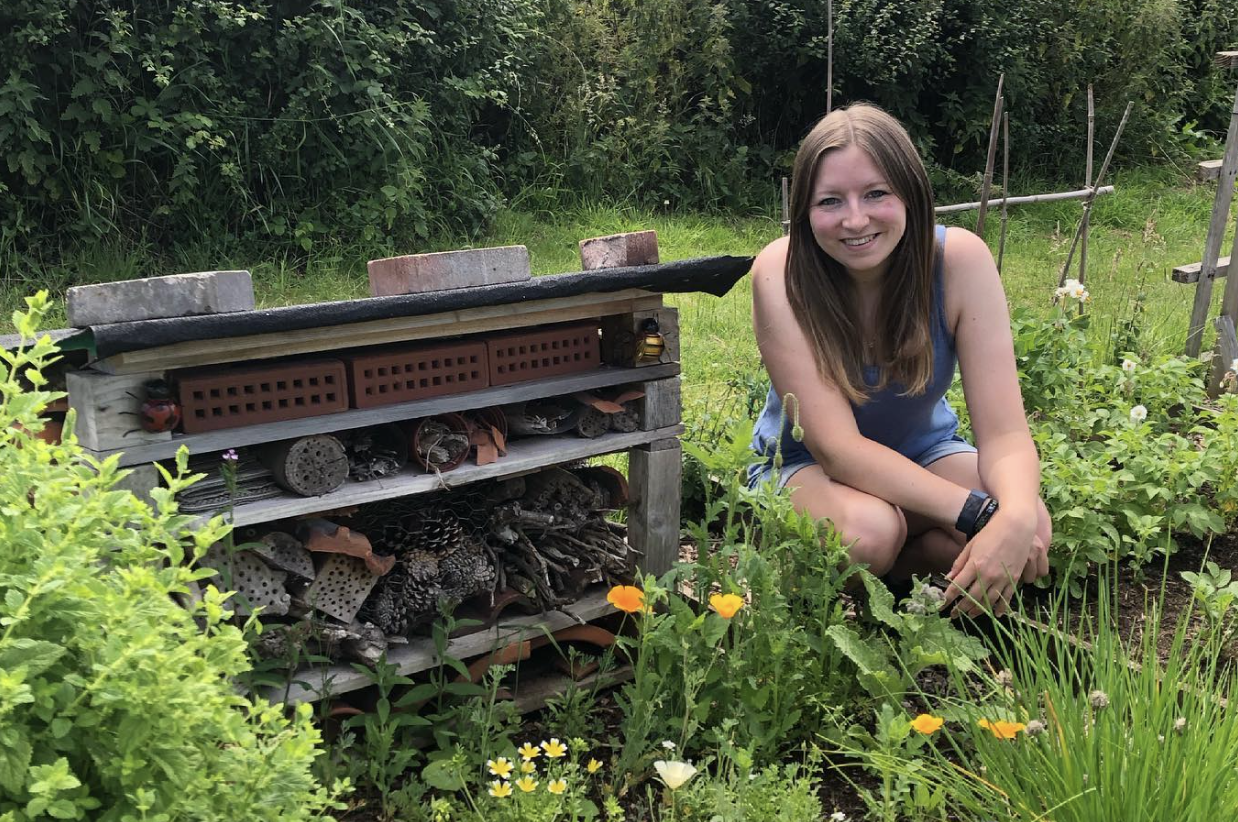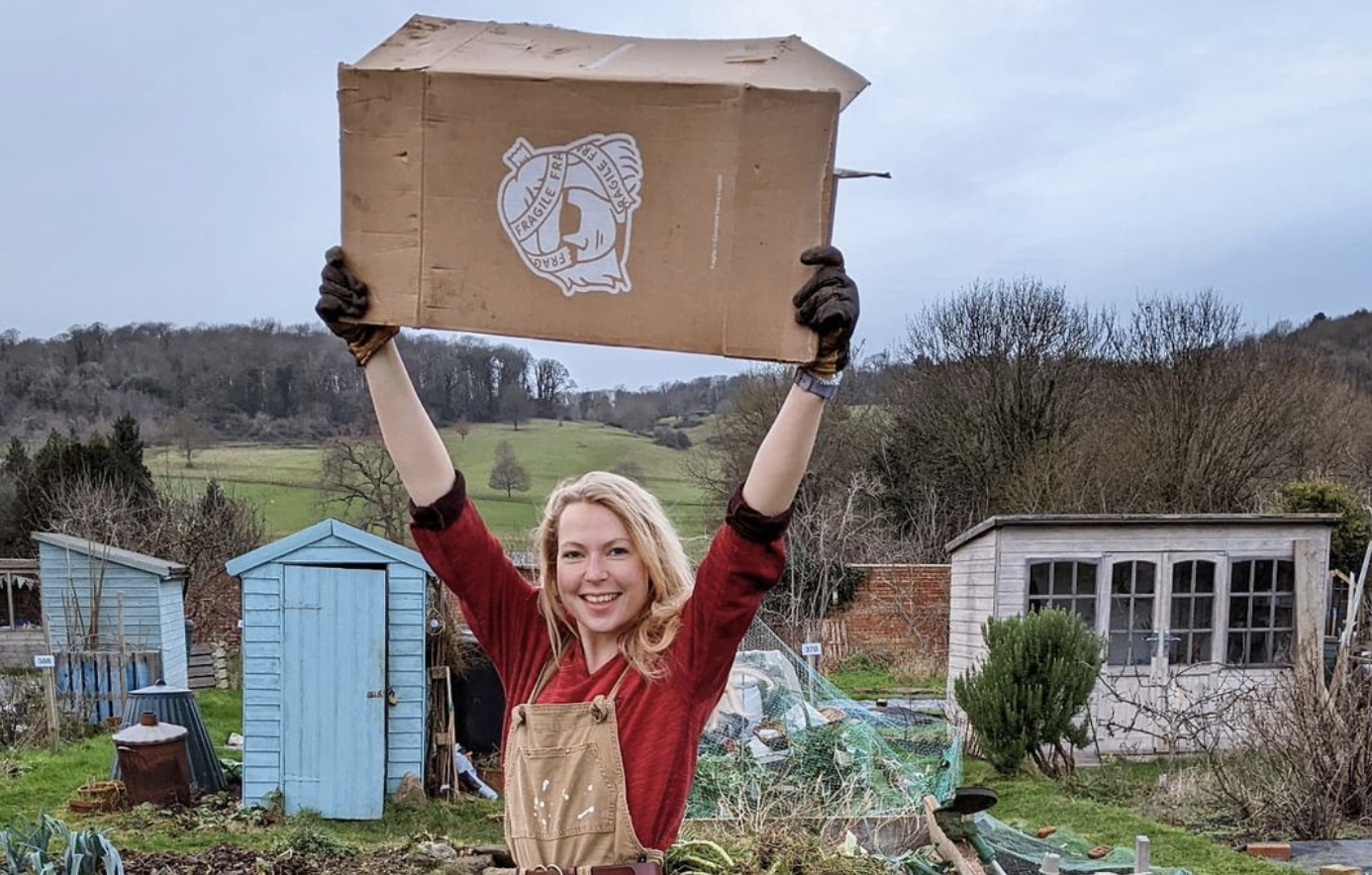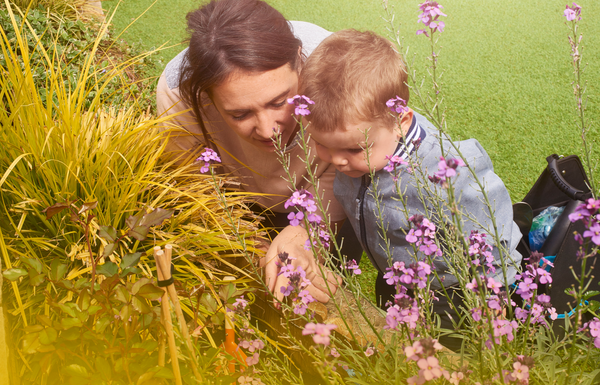Waste Nothing on the allotment for #NationalAllotmentsWeek

Waste Nothing on the allotment
It’s National Allotments Week and two Bristol Waste staff couldn’t be happier! We asked keen bean allotmenteers Alex and Jenny shared their top tips to combine this year’s Allotment Week theme (bugs, bees and broccoli) with our mission to help Bristol waste nothing.

Alex on her allotment next to her DIY bug hotel. Image credit: @PortisheadAllotment
Alex said “The idea of wasting nothing and repurposing items is very much part of allotment life! My bug hotel, ‘Buglins’ is probably the best thing I’ve ever created on the allotment. It’s entirely made out of reclaimed materials: wood and twigs, bricks, leftover shed roof felt, pine cones and cardboard all provide shelter and habitats for different creatures.”

Jenny on her allotment using cardboard to make a new path. Image credit: @Jenny.Roozel
Jenny said “I’m always on the lookout for things that could be reused on the plot. Cardboard is probably the most reused item on any allotment anywhere, it’s just so useful to suppress weeds, create no dig beds or feed compost.
“I found some bricks washed up on the beach last year that had been worn smooth by the sea. I carried this stack of very heavy bricks all the home and now they’re used on the plot as mini bug hotels, weights, stepping stones… all sorts!
The Reuse Shops are often full of great gardening tools and accessories, too. For example, I found a vintage Sussex trug in the Avonmouth shop for just £2!”
Jenny and Alex’s top tips to waste nothing on the allotment
(These ideas also work great in the garden!)
- Compost as much as you can, from wood chip to weeds, pet fur to food scraps
- Use cardboard to suppress weeds, create no dig beds and feed your compost heap
- Ask your garden centre if they can recycle plant pots and trays
- Use scrap wood from Bristol Wood Recycling Project
- Buy secondhand tools at the Reuse Shops
- Borrow tools from the Share Bristol, a library of things
- Keep an eye out for anything you can save from going to waste by repurposing it on the plot. For example, a wire bin can be reused to make a protective cage for crops, or a clothes rack could be used for climbing vines.

Healthy soil grows happy plants
The theme of National Allotment Week this year is soil health. Looking after the soil is not just important to grow healthy plants in our gardens, allotments, and farms, but it can also hold onto carbon and stop it from being released into the atmosphere.
Talking about the importance of soil health, Jenny said:
“Healthy soil also absorbs more moisture when it rains, is less likely to dry out and crack in hot weather, and contains more nutrients for your plants.
The easiest way to improve soil health is to add a layer of organic matter to it once a year, such as compost, well-rotted manure, or plant cuttings. Another trick is to make sure you don’t leave soil empty for too long. You can solve this one by planting cover crops such as clover or mustard that can be cut down when you’re ready to plant your next crop or flower patch.
Traditionally, allotmenteers used to ‘dig over’ their plots every year to break up the soil. However, we now know that actually damages the important structures and beneficial networks within the soil. Try adding a layer of organic matter to your planting beds instead of digging it over and you’ll soon notice the difference! Search for ‘no dig gardening’ online for more detailed instructions.”
